When it comes to choosing between cyanocobalamin and methylcobalamin, the answer is not as straightforward as one might think. Both forms of vitamin B12 are essential for human health, but they differ in some important ways that may make one a better choice than the other depending on the situation.

In this article, we will explore the differences between cyanocobalamin and methylcobalamin, and discuss which one may be better suited for your needs.
What is Vitamin B12?
Before we dive into the differences between cyanocobalamin and methylcobalamin, let's first discuss what vitamin B12 is and why it is important.
Vitamin B12 is a water-soluble vitamin that is essential for the proper functioning of the nervous system, the formation of red blood cells, and the metabolism of fatty and amino acids. It is also involved in the production of DNA, which is essential for cell growth and division.
Vitamin B12 is naturally found in animal products such as meat, fish, and dairy, and is also available in supplement form for those who do not consume enough in their diet.
Cyanocobalamin vs. Methylcobalamin
Cyanocobalamin is the most commonly used form of vitamin B12 in supplements and fortified foods. It is also the form used in most clinical studies.
Methylcobalamin, on the other hand, is the form of vitamin B12 that is naturally found in food. It is also the form that is used in the body's metabolic processes.
The primary difference between cyanocobalamin and methylcobalamin is the way they are metabolized in the body.
Cyanocobalamin must first be converted into a usable form by the body, which requires the presence of adequate levels of certain nutrients such as folate and vitamin B6. This means that individuals with certain genetic variations or nutritional deficiencies may have difficulty converting cyanocobalamin into a usable form, and may not receive the full benefits of vitamin B12 supplementation.
Methylcobalamin, on the other hand, is already in a usable form and can be readily absorbed and utilized by the body. This makes it a better choice for individuals with certain genetic variations or nutritional deficiencies that may impair their ability to metabolize cyanocobalamin.
Which One Should You Choose?
The choice between cyanocobalamin and methylcobalamin ultimately depends on your individual needs and circumstances.
If you have no issues with cyanocobalamin metabolism and are looking for a cost-effective option, then cyanocobalamin may be the best choice for you. It is widely available, inexpensive, and has been shown to be effective in most clinical studies.
However, if you have genetic variations or nutritional deficiencies that impair your ability to metabolize cyanocobalamin, or if you are looking for a more easily absorbed form of vitamin B12, then methylcobalamin may be a better choice for you.
Additionally, if you are vegan or vegetarian, you may want to consider a plant-based form of vitamin B12, such as cyanocobalamin derived from algae, or methylcobalamin derived from fermented soy.
Conclusion
If you are unsure which form of vitamin B12 is right for you, it is always best to consult your doctor. In conclusion, both cyanocobalamin and methylcobalamin are important forms of vitamin B12, and the choice between the two ultimately depends on your individual needs and circumstances. While cyanocobalamin may be the most cost-effective option for most people, those with genetic variations or nutritional deficiencies may benefit from the more readily absorbed form of methylcobalamin.


Share:
How Much Water Do Athletes Need During a Workout?
Staying Sober at Parties: Tips and Strategies